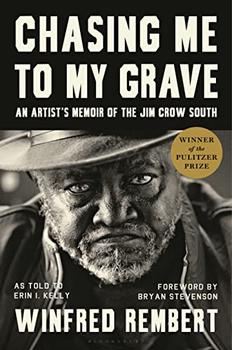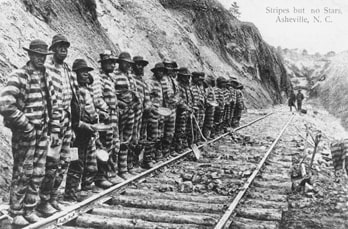Summary | Excerpt | Reviews | Beyond the book | Read-Alikes | Genres & Themes | Author Bio

An Artist's Memoir of the Jim Crow South
by Winfred RembertWinfred Rembert grew up in a family of Georgia field laborers and joined the Civil Rights Movement as a teenager. He was arrested after fleeing a demonstration, survived a near-lynching at the hands of law enforcement, and spent seven years on chain gangs.
During that time he met the undaunted Patsy, who would become his wife. Years later, at the age of fifty-one and with Patsy's encouragement, he started drawing and painting scenes from his youth using leather tooling skills he learned in prison.
Chasing Me to My Grave presents Rembert's breathtaking body of work alongside his story, as told to Tufts Philosopher Erin I. Kelly. Rembert calls forth vibrant scenes of Black life on Cuthbert, Georgia's Hamilton Avenue, where he first glimpsed the possibility of a life outside the cotton field. As he pays tribute, exuberant and heartfelt, to Cuthbert's Black community and the people, including Patsy, who helped him to find the courage to revisit a traumatic past, Rembert brings to life the promise and the danger of Civil Rights protest, the brutalities of incarceration, his search for his mother's love, and the epic bond he found with Patsy.
Vivid, confrontational, revelatory, and complex, Chasing Me to My Grave is a searing memoir in prose and painted leather that celebrates Black life and summons readers to confront painful and urgent realities at the heart of American history and society.
This book was co-written with journalist Erin I. Kelly, who sat down with Winfred every two weeks from 2018 through 2020 and transcribed his memories from biographical interview questions. She then read the pages back to him to make sure she had captured his voice accurately. The result is a masterpiece. The text is raw, candid and blunt. Kelly's organization and faithful transcription allow Rembert's stories to roll off the page as fluidly as they likely did from his mouth. This combination of armchair storytelling with fascinating life events makes Chasing Me to My Grave a compulsive read...continued
Full Review
 (668 words)
(668 words)
(Reviewed by Ian Muehlenhaus).
 As we all know, slavery was abolished in the United States after the Civil War when Congress passed the 13th Amendment. What many might not recognize is that the 13th Amendment did not ban slavery entirely. In fact, it explicitly states an instance in which slavery and involuntary servitude are permitted — when people are incarcerated. Prisoners can be forced to participate in penal labor without pay.
As we all know, slavery was abolished in the United States after the Civil War when Congress passed the 13th Amendment. What many might not recognize is that the 13th Amendment did not ban slavery entirely. In fact, it explicitly states an instance in which slavery and involuntary servitude are permitted — when people are incarcerated. Prisoners can be forced to participate in penal labor without pay.
The 13th Amendment is succinct:
Neither slavery nor involuntary servitude, except as a punishment for crime whereof the party shall have been duly convicted, shall exist within the United States, or any place subject to their jurisdiction.
Since the end of the Civil War, the 13th Amendment has been used to persecute ...

If you liked Chasing Me to My Grave, try these:

by Kellie Carter Jackson
Published 2025
A radical reframing of the past and present of Black resistance—both nonviolent and violent—to white supremacy.

by Paul Alexander
Published 2025
A revelatory look at the tumultuous life of a jazz legend and American cultural icon
We've heard that a million monkeys at a million keyboards could produce the complete works of Shakespeare...
Click Here to find out who said this, as well as discovering other famous literary quotes!